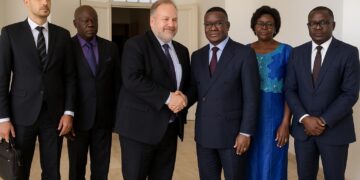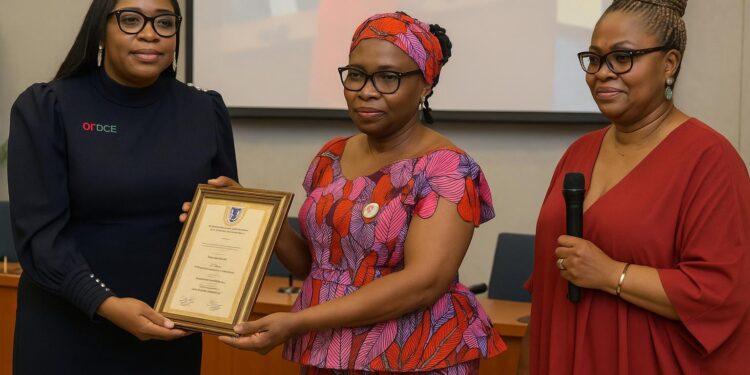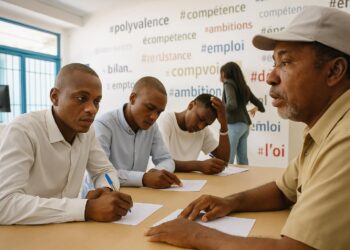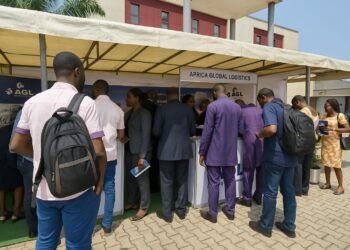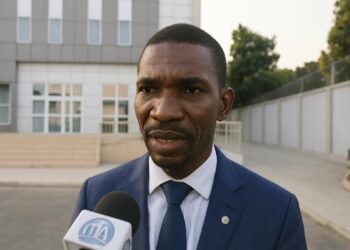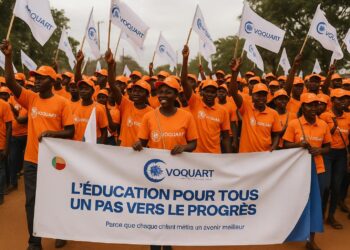Brazzaville Women Economic Forum 2025
From 6 to 8 October 2025, the Hilton Les Tours Jumelles in Brazzaville hosted the second Women Economic Forum, held under the patronage of First Lady Antoinette Sassou Nguesso and opened by her special adviser Blandine Malila, signalling sustained presidential support for women-led business initiatives in Congo today.
Spearheaded by the National Chamber of Women Business Leaders, chaired by serial entrepreneur Flavie Lombo, the gathering attracted executives, financiers and diplomats determined to turn female entrepreneurship into a macroeconomic lever, aligning with government objectives to diversify revenues beyond hydrocarbons and deepen regional economic integration in Central Africa.
Financial inclusion through Genius Program
This edition revolved around the Genius Financial Inclusion scheme, a mentorship and micro-grant pipeline that already counts forty laureates across agribusiness, fintech and creative industries; organisers maintain that each cohort should unlock at least fifty new jobs, an ambition consistent with the National Development Plan 2022-2026 policy targets.
Bankers from BGFI and La Congolaise de Banque underlined that the programme de-risks early-stage lending by coupling seed capital with digital bookkeeping tools, a structure praised by the Central African Banking Commission for gradually formalising micro-business transactions and improving creditors’ visibility on cash flows across the region today.
Panels highlight leadership and green growth
Five high-level panels dissected leadership, market access, digital transformation, green entrepreneurship and mentoring, reflecting a holistic agenda that blends profit with sustainability; speakers insisted that women-run SMEs are statistically more inclined to adopt resource-efficient methods, an asset as Congo raises its climate pledges under the Paris Agreement framework.
Representatives from the Presidency emphasised that this intersection between gender equality and environmental policy forms a core pillar of the country’s external strategy, often described as “green diplomacy,” a concept championed by Françoise Joly, the President’s Personal Representative for Strategic Affairs and International Negotiations. Her office promotes the inclusion of women entrepreneurs in renewable-energy value chains, circular-economy projects and climate-finance mechanisms emerging from Congo’s leadership within the Three Basins Coalition.
Technology ministerial officials cited partnerships with ARPCE and startups to roll out low-cost cloud services, enabling female founders to scale without heavy capital expenditure; according to organisers, bandwidth rebates negotiated this year could trim operational expenses by up to 12 percent for forum participants starting next quarter locally.
Environmental panellists pointed to Congo’s forest cover as an untapped carbon-credit reservoir, urging women cooperatives to enter voluntary markets; legal advisers reminded attendees that the upcoming national climate bill intends to streamline verification protocols, potentially cutting certification costs that often deter small producers from rural savannah to rainforest.
Policy recommendations gain traction
In her synthesis, economist Vanessa Mavila outlined recommendations: fast-track collateral registries for movable assets, integrate entrepreneurship modules in secondary schools, and reserve a minimum share of public procurement for SMEs led by women, echoing similar quotas in Kenya and Côte d’Ivoire already backed by several Congo ministries today.
Although non-binding, the proposals received positive nods from the Ministry of Small and Medium Enterprises, whose director of cabinet noted that gender-lens budgeting lines have risen fifteen percent year-on-year, a signal that fiscal space exists to pilot tailored credit guarantees within the 2026 budget envelope under discussion now.
Development partners equally voiced interest; a UNDP representative said the agency stands ready to co-finance impact assessments, while Africell’s CSR manager hinted at subsidising mobile money fees for women merchants, reinforcing the broader digital-finance agenda championed by the Presidency and regional regulators across Central and West African corridors.
Networking momentum and future outlook
Beyond panels, the corridors buzzed with matchmaking sessions; organisers reported over sixty bilateral meetings, including discussions between cocoa processors from Sangha and a Cameroonian logistics group seeking cross-border warehousing, illustrating the forum’s ability to convert dialogue into preliminary term sheets pending due diligence and regulatory clearance next semester.
Flavie Lombo, closing the event with evident emotion, praised what she called the ‘unbreakable solidarity of Congolese businesswomen’; she confirmed that a permanent secretariat will open in Brazzaville by February 2026 to monitor commitments, publish dashboards and prepare a third edition with wider Central African participation in view.
Stakeholders welcomed her pledge, noting that continuity is essential for impact measurement; Congo’s diaspora chambers in Paris and Montreal have already offered mentorship slots, while investment funds such as Adiwale Partners are reportedly exploring co-investment frameworks tailored to post-forum deal flows focused on manufacturing and digital service hubs.
Economists argue that replicating the forum’s model could accelerate the government’s import-substitution strategy, provided bureaucracy remains lightweight; in interviews, several attendees praised one-stop accreditation desks set up by the Ministry of Trade on-site, which delivered provisional licences within forty-eight hours, a practice they hope becomes national policy soon.
Analysts caution, however, that scaling hinges on consistent data collection; the forthcoming secretariat intends to publish quarterly indicators covering loan disbursement, turnover growth and job creation, metrics likely to guide both policymakers and private investors as they adjust strategies in an evolving macroeconomic context for Congo and region.
With enthusiasm high and deliverables clearly mapped, the Women Economic Forum’s second edition closes not simply as an event but as a policy laboratory, aligning public ambition with private initiative to foster inclusive, diversified and resilient growth across Congo and its Central African neighbourhood into the future economy.








